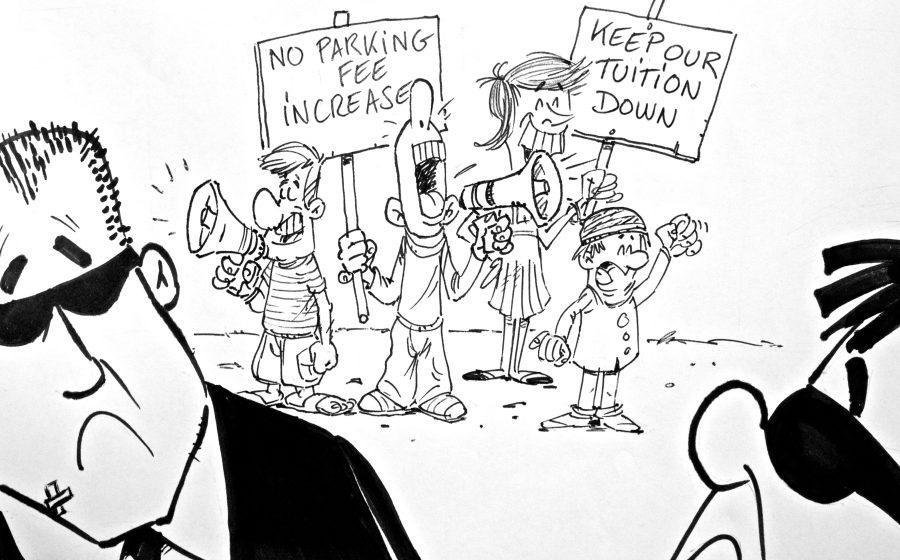Over fifty students sat in the waiting area in front of the chancellor’s office. A hundred more were outside, rallying for change in the way the university was operating, to get their voices heard and their declarations understood. Standing up for what they believed in, these students virtually brought the university to a standstill as they voiced their grievances with the system. The administration, though reluctant to grant the request of the protesters, was forced to sit and listen or potentially witness a student mutiny.
If you’re wondering why you didn’t see this recently, it’s because it happened over thirty years ago in April, 1980.
It’s a new age at UMass Boston. An overwhelming majority of the student body commutes. The average student age is 25 years. Our student body isn’t made up of the average school-going folk. Most of us have numerous issues to deal with aside from our education, like earning income.
Due to these unavoidable circumstances, fostering unity and cohesion on campus is a mammoth task, if not an impossible one. Without this cohesion, it is nearly impossible for us to adequately unify our voices when we’re unsatisfied with the direction our university seems to be headed in. As a result of this, most of the protests I’ve witnessed on campus, or rather, attempted protests, have never quite had the desired effect.
The Occupy UMB movement, for example, had great demands which would have benefited almost every student. In the end the movement tapered out quite meekly. The diagnosis of its demise threw up the same old phrases: “disorganized,” “uncoordinated and not cohesive,” “no clear message,” “need to shower.”
Yes, these protests were all of the above, but understandably so. The questions we should ask ourselves are: Does the student body’s lack of cohesion provide a potent excuse for the administration not to take our concerns seriously? Are we to deferentially ignore the administration as it turns a deaf ear to our concerns?
Regardless of how well we voice our opinions, all that actually matters are our opinions.
Don’t get me wrong; some of the students’ concerns have received responses. After some complaints, numerous focus groups, with regards to students’ food preferences, were organized by campus services to improve the quality of the on-campus dining experience. Also, a lot of students were miffed by the excessive amount of smoking that took place on campus, especially in front of the Wheatley building. Appropriate measures were taken to rectify that. Even the calls for dorms have been heard.
In contrast, issues which are disputably much more fundamental to student life and which could go as far as determining whether or not a student continues to receive an education are still not being taken care of. The most obvious example of this phenomenon would be the recurring increases in fees. There is also the ongoing parking fee debacle to examine.
A lot of students are left dissatisfied with this phenomenon. I am inclined to agree with one Chris Morill, a sophomore, who said: “When it’s in the interest of trudging along on the path of privatization, they [the university administration] are more determined and forceful in getting it done.”
Granted, there are a number of bureaucratic hurdles to jump through in order to address these issues of privatization and fees. Still, one has to wonder if the Board is simply not willing to exert itself enough, or if our demands are indeed unfeasible. I’m inclined to believe it’s the former.

